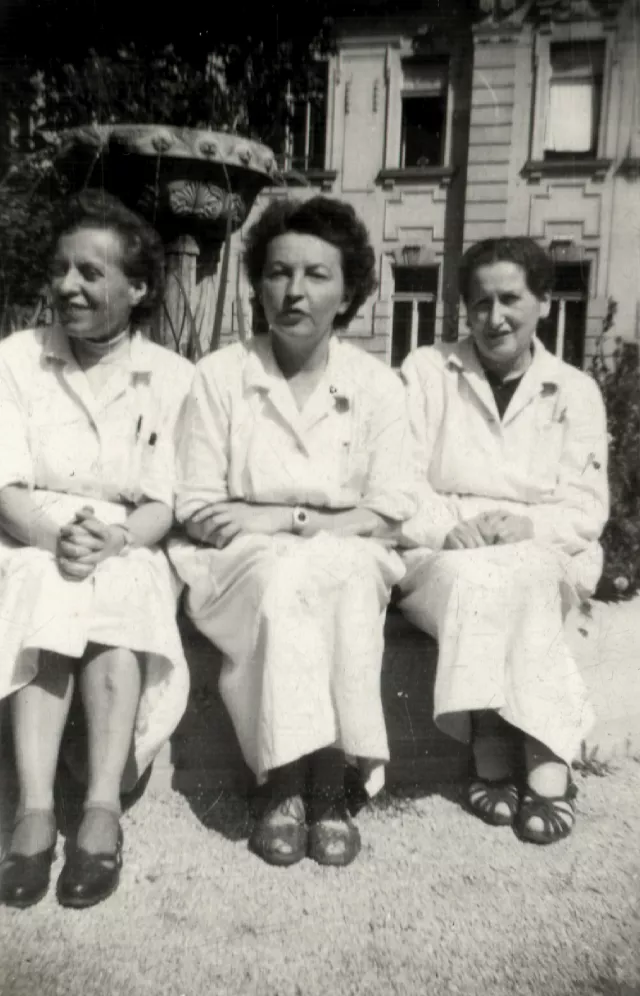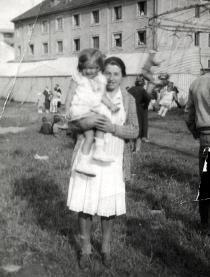Erzsebet Antal and friends
This is a picture of my mother, Erzsebet Antal, nee Rasko, taken in Budapest in 1960. I don?t know who the other people on the picture are. They must be her colleagues.
My mother graduated from the Szilagyi high school, and then she studied something to do with horticulture, and she worked in that field. She learnt to tailor and to sew just as a hobby. But she didn't really have a profession; she was a housewife, and was at home. Later, after the war, she worked in public health as a hospital caretaker, and she completed courses. So she was skilled in hospital management. First she was in the Rokus hospital, then she was the manager of the Bakats Square hospital.
In October 1944, when the Jews had already been deported from the countryside, the Arrow Cross men went into the yellow-star houses and said that everybody had to come out and they would take us to work. First the men, then a few weeks later the women were taken. And when they wanted to take my mother, too, she lay down on the bed as if she was sick and couldn't go. A policeman, who looked like he was the father of a family himself, came and told her to get up right then. And she started pretending that she was sick, she couldn't breathe, so the policeman brought a glass of water. But when she said that she couldn't get up, he held up his gun and said, 'Get up or I'll shoot you right now!' And at that very moment my grandmother entered and started screaming, 'My daughter Bozsi what's happening to you here?' In the meantime the Arrow Cross man shouted to the policeman to come and he said, 'This one here is having convulsions'. To this the Arrow Cross man said, 'Leave her to hell, let's go!' And he left with the group. At that very moment my mother got up, she grabbed my brother and me and said that we wouldn't stay here. She ran away with us.
A few days later my mother found a Swedish protected hospital and children's home at 26 Erzsebet Boulevard and she took us there. It was a two-bedroom apartment, where about sixty children slept and we got along quite well. She said that she was a nurse and her husband was a doctor, and that she worked there on the ground floor with the sick old Jews.
My mother survived the war. She died in 1983.





































